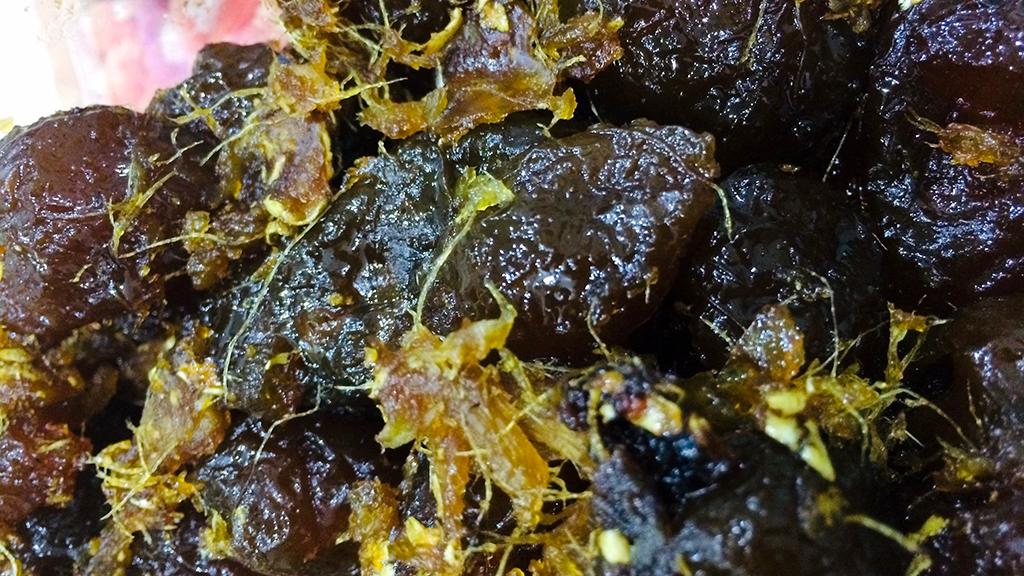 |
| Sweet and sour taste, ginger flavor makes dried fruit attractive to all ages |
Pham Huong |
Dried apricots are considered a snack that conquers the tastes of all ages, from children, adults to the elderly, because of their delicate flavors and increasingly diverse product types.
Children often like the sweet and sour taste of young apricot, green rice lime, and apricot. Young people are excited about the sour, spicy, salty, and sweet taste of pickled plums. Older people often prefer the warm, spicy taste of ginger pickled plums.
Hanoi is famous for its own food in each season, but perhaps preserved fruit is a gift that attracts customers in all four seasons and is sold all year round.
It is not wrong to say that dried apricots are one of the typical gifts of Hanoians. Because the process of making dried apricots is very meticulous and elaborate. In which, the taste of the dried apricots is the most important. It is not like cooking a simple dish but contains a whole philosophy of yin and yang and the five elements.
The taste of traditional apricots must always ensure a harmonious balance between sour - spicy - salty - sweet but still not lose the characteristic flavor of each fruit cooked into apricots.
Therefore, among the many sweet, salty, sour, spicy and salty dried fruits, diners can still clearly feel and distinguish them from dried apricots, apricots, plums, etc. without confusion. Hanoi is characterized by the cold autumn and winter weather, so dried apricots seem to become an indispensable gift.
The appearance of white sugar-coated apricots next to a teapot and small stories have become unique images of Hanoi.
Nowadays, with the development of the market and cultural integration, more and more diverse gifts appear to attract customers' tastes. However, dried apricot still holds a certain position in people's hearts.
Not only that, from being a familiar and simple snack, now dried apricot in the culture of Hanoians and those who love this place has become a specialty with the flavor and culture of Hanoi, so that every time Tet comes, spring comes, it is chosen to give to loved ones or to offer to the ancestral altar as a gratitude to the origin.
 |





























![[Photo] National Assembly Chairman Tran Thanh Man visits Vietnamese Heroic Mother Ta Thi Tran](https://vphoto.vietnam.vn/thumb/1200x675/vietnam/resource/IMAGE/2025/7/20/765c0bd057dd44ad83ab89fe0255b783)







































































Comment (0)